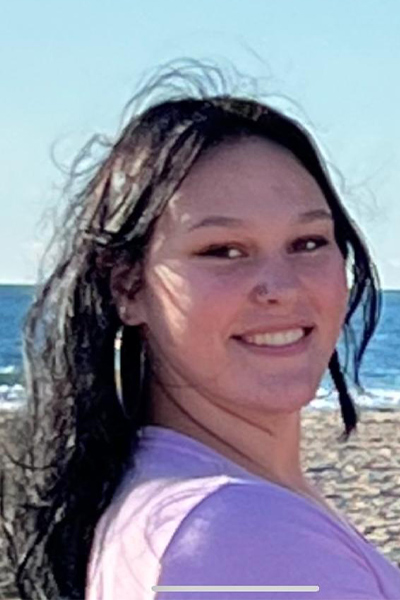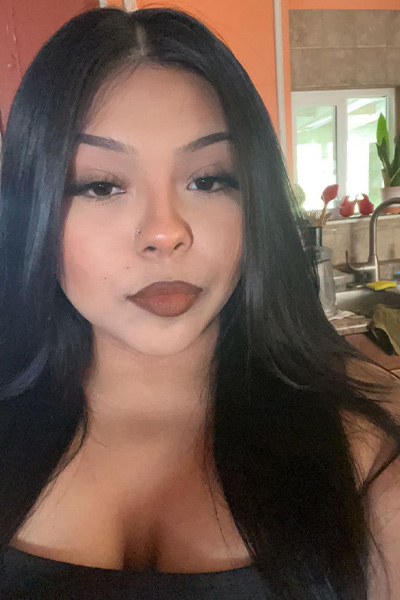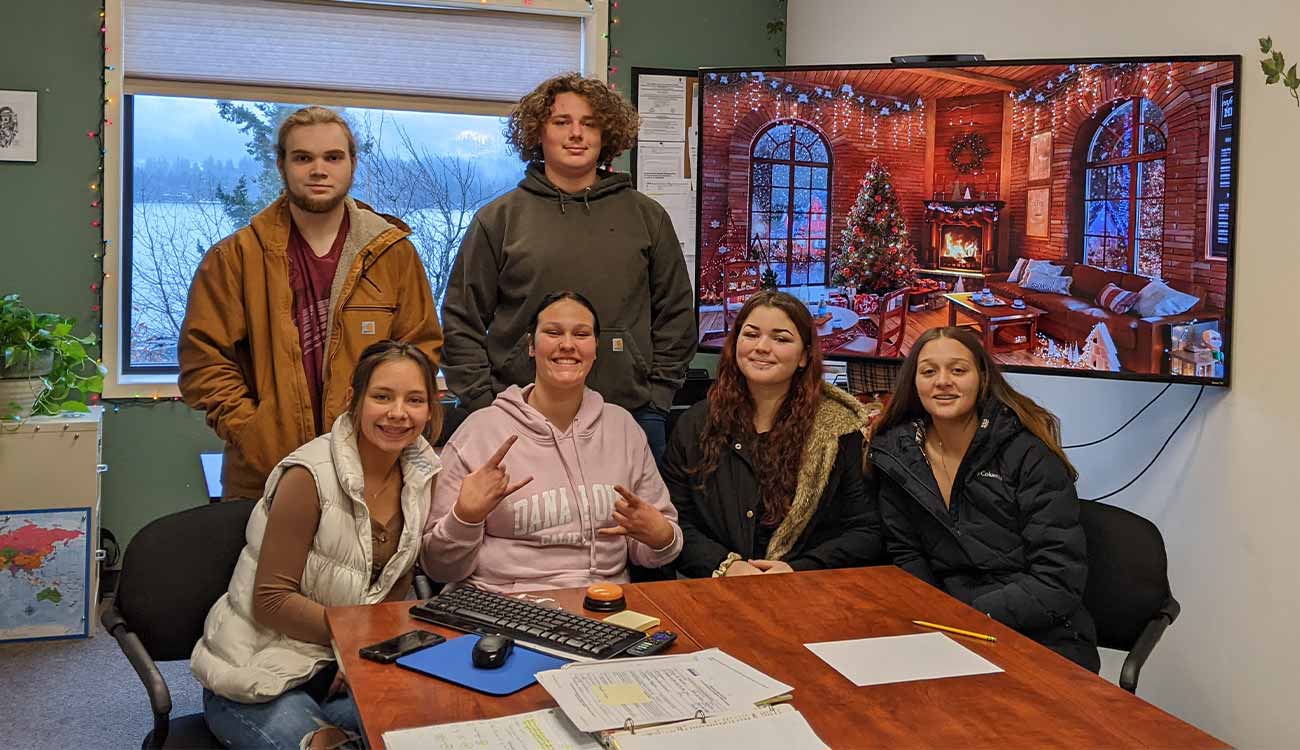YVC helps students overcome hardships to complete high school, open pathway to college
During her sophomore and junior years of high school, health issues forced Jackie Worley of Ellensburg into multiple hospital stays. With her school not offering an online option, Worley quickly found herself lagging far behind in her graduation requirements.
The challenges only mounted from there.
“As soon as I turned 18 I had a job and was living on my own, so I had rent and a car payment to make,” Worley said. “I didn’t have time to go to normal morning classes.”
Facing the prospect of not completing high school, Worley’s guidance counselor recommended Yakima Valley College’s Step up to College (SUTC) program. The program provided a lifeline for Worley — thanks to the flexibility of YVC courses, she was able to complete her education requirements for graduation and at the same time work in the custodial services department of a local hospital to pay her bills.
“The staff in the program were super understanding of my situation, that I worked full time and that I’m still chronically ill,” Worley said. “They always had positive things to say and made sure I had the resources I needed to succeed.”
Since finishing completing her graduation requirements through SUTC in July 2022, Worley has started working toward her radiology degree at Portland Community College. Inspired by the health professionals who made a difference in her own life, her goal is to pay that care for others forward.
“Our intent is to provide [students] with not only a degree or certification, but to intentionally help them structure their future success.”
— Lorinda Anderson, Step up to College staff member
High-touch services make the difference
Carol Kelly, am SUTC instructor and coordinator, said one of the program’s greatest benefits is providing students with more individualized attention and one-on-one tutoring, when needed.
“In an environment where so many unforeseen circumstances can cause a student to get behind and become discouraged, providing alternative ways to overcome obstacles and continue toward a diploma or GED not only creates academic success, but also builds resilience for life’s challenges,” Kelly said.
SUTC serves students ages 16-20 from the Grandview, Mabton, Toppenish, Kittitas, Stevenson-Carson and Ellensburg school districts. In addition to being able to enroll in YVC courses that provide credits needed for their high school diploma, students can also earn high school credit by demonstrating competency in a subject through placement exams or by showing evidence they’ve gained the knowledge needed to meet course outcomes through training or work experience.
In Worley’s case, that involved taking YVC classes in writing, math and history. She also earned credit through her work for the hospital.
“I was able to do my school work in the morning, then go to my job and do my homework during lunch break and after work,” she said.
“Step up to College has been extremely important so I can go and start a life and be able to live and have a good income for myself.”
— Jacie Glenn, Step up to College student
Focusing on each student’s individual needs and recognizing their talents and skills, says Kelly, is essential to changing the trajectory of those who come into the program lacking academic skills and self-confidence.
“I do my best to make learning fun by incorporating games and extrinsic rewards,” she said. “The kind of support I give students to help them succeed emerges from having my heart in my classroom.”
For Kelly, caring for students means going through both the ups and downs of life together. Last summer, for example, after a student from the Stevenson area was killed in a car accident, she and other students in the program gathered for a vigil on the banks of the Columbia River to honor that student’s memory.
“Those are the moments that hopefully communicate what is most important: someone cares,” Kelly said. “That caring translates back into success in the classroom as we study together and then flows into the world as our students develop and contribute to their communities.
 Jacie Glenn of Stevenson started SUTC in September in search of an experience that
she believed would better prepare her for the real world than traditional high school.
She had heard from friends who had good experiences in the program and raved about
Kelly’s teaching and support.
Jacie Glenn of Stevenson started SUTC in September in search of an experience that
she believed would better prepare her for the real world than traditional high school.
She had heard from friends who had good experiences in the program and raved about
Kelly’s teaching and support.“I’m better when I get one-on-one help from someone rather than just reading from a book that someone gives me,” Glenn said. Rather than needing to complete an assignment in a specific way, she has a choice of ways to show her work. In addition, Glenn noted that Kelly has been helpful in sharing information about different ways she can go about preparing for a career.
“The classes are great, the instructor is amazing, I love her,” Glenn said. “I’ve learned more than I did in the other three years of high school.”
Planning the next step
Through the program, students complete a “High School and Beyond” plan, which involves researching careers that align with their interests, creating a professional resume and cover letter, applying for financial aid and applying for a post-secondary educational opportunity that matches their career interests.
Lorinda Anderson, a SUTC staff member who retired in January, said the goal is to work with students to create meaningful next steps for their future.
“Our intent is to provide them with not only a degree or certification, but to intentionally help them structure their future success,” Anderson said. “Often, the setting for SUTC in-class experiences is more conducive to intentional learning because of small class sizes, the ability to provide one-on-one instructional support, and being in an environment where they have the support of their peers who are experiencing similar challenges.”

“Students were more focused and knew what they were there for,” she said. “Everyone was there to get their work done and that made a huge difference.”
Esqueda took several classes, including English, history and math courses, and completed her graduation requirements in December.
Now, she’s looking to start college in the fall with hopes of studying psychology and becoming a therapist so she can help young people. The possibility of college didn’t seem real to Esqueda until she started having conversations with Anderson about her future options.
“She [Anderson] was the one who started pushing me to think about college and what I like doing,” Esqueda said. “I found psychology and the art therapy thing and started feeling more of a calling to pursue that.
“I feel like what got me into psychology was figuring out myself and understanding myself. It led me to read a lot of self-development books and I feel like if I had understood myself better [when I was younger] I would have avoided some things I went through. I’d like to help other people going through those same issues.”
For her part, Glenn is hoping to enter a trade school and become an electrician after completing her high school graduation requirements later this year.
“I don’t want to be an office worker, I don’t want to be stuck in retail. I’m a hands-on person and I think being an electrician would be a good path for me,” Glenn said. “Step up to College has been extremely important so I can go and start a life and be able to live and have a good income for myself.”
